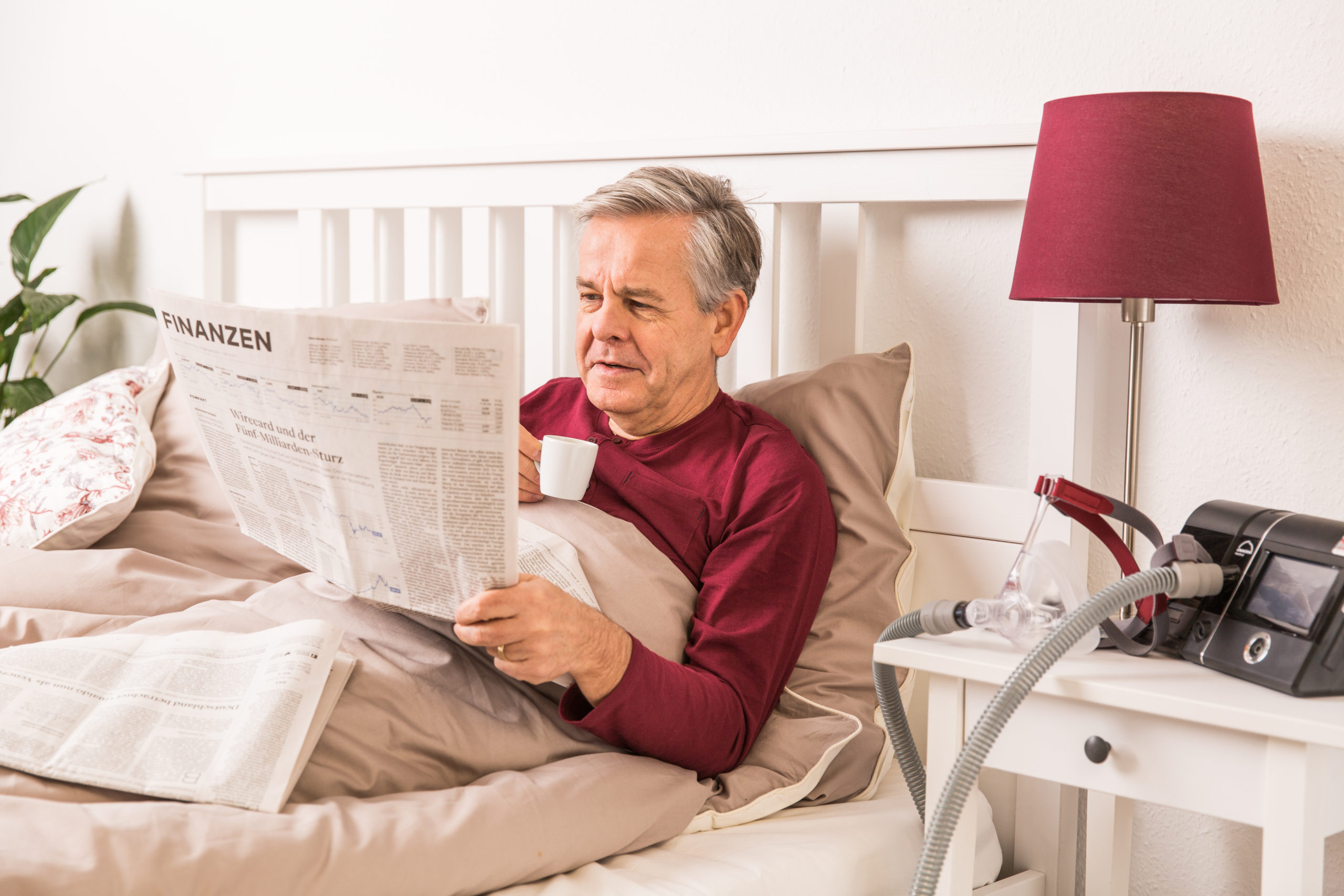Managing sleep apnoea correctly will lead to a more balanced & fulfilled lifestyle
This is a powerful often touted statement used by clinicians to empower & motivate patients in the quest for better sleep specifically when they suffer from the sleep disorder of apnoea. It is true but it’s often overlooked simply due to the simplicity and lack of further explanation. As a sleep apnoea patient (or treating clinician), it is helpful to split this phrase into 4 key parts, per sub-headings below, and explore each in depth to get a better grasp on what good treatment really means for you as a person.
Managing Sleep Apnoea
This refers to treatment for the group of diseases known as “Sleep-Disordered Breathing”. An apnoea is defined when breathing ceases for longer than 10 seconds. Hence sleep-disordered breathing can take many forms outside of apnoea, such as: hypopnea, respiratory effort related arousal (RERA), snoring, flow limited breaths, and even simple pauses, gasping, speeding up and slowing down of respiratory rate and numerous other instabilities. It is helpful to understand that sleep apnoea normally refers to a whole subset of breathing related events that prevent a good night’s sleep. Managing refers to the many effective treatment options available to a patient diagnosed with the chronic disorder of sleep apnoea, including but not limited to; improving sleep hygiene, behavioural and lifestyle changes, achieving healthy body weight, dental splints, surgical measures, and many other methods that are not yet supported by independent proof. Amongst the many possibilities, using a sleep apnoea device (positive airway pressure) is widely regarded as the gold-standard or most effective. What we undertake to describe in the following breakdown specifically has sleep apnoea devices (positive airway pressure) in mind, although the principles explored have some cross-application with other medical treatments of sleep and in general.
Correctly
This single word speaks volumes and is a key consideration in treatment of sleep apnoea or sleep-disordered breathing or any medical condition. It refers to treating individuals in an appropriate, balanced, knowledgeable, needs-orientated, personalised, and professional manner. Efficiency is a word that goes hand in hand, whether it be drugs or pressure, achieving a just-right result through just-right amount of treatment is regarded as the correct way to treat, especially if overdoing it is likely to bring negative side-effects. In the case of those suffering from sleep-disordered breathing we want to give the breathing a chance to naturally restore into a normal stable cycle. There is a very delicate balance involved in doing so when delivering treatment pressures during the unstable state of sleep to avoid, broadly, two common problems, both of which are detrimental and what we call sub-therapeutic:
- Overtreating– this may appear to fix the condition as all the apnoea’s are stomped out by pressure that is too high, whilst bringing a suite of possible negative side-effects, such as: arousals (waking up during the night), breathing instabilities not so easily observed, leakage, nervous system activation, prevention of good quality sleep, and stress on organs and brain activity.
- Undertreating – this means failing to reach high enough pressure levels as required to address what started out as a significant health problem, so to an extent the problems associated with sleep disordered breathing will remain. These problems are briefly explored under the heading further on: “More Balanced & Fulfilled Lifestyle.”
A combination of both these common problems can occur through mistimed fluctuations in the positive airway pressure so that some of the time it is overtreating and sometimes it is undertreating, causing a mixture of side-effects and problems. Given the varying extents of overdoing it or underdoing it, it is only you that can judge how much better you would get on and how much that is worth to you when you experience treatment improvement. A note to add here is that people tend to become used to an altered state of daytime function and sleepiness through long-term adaptation to being under/over treated (or not treated at all), so please always keep in mind that regardless of whether you feel like you need it or not, improvement is very likely possible given the complexity of achieving the delicate balance!
Will Lead to
This is an interesting fact about treatment, particularly sleep. Some people expect sleep treatment to instantaneously be acceptable to them and make them feel better. The reality is that it does not normally work this way, sleep is something we do without thinking too much about every single night, so adjusting this ‘automatic’ routine does take time. To start sleeping in a whole new way requires good compliance, patience, and perseverance, and then you will gradually start to experience the difference. After 1-4 weeks on a sleep apnoea device, depending on the individual and with the “Correctly” step achieved, some degree of improvement will normally be unlocked. As time runs its course, further improvements can be expected.
A More Balanced & Fulfilled Lifestyle
The effects of sleep apnoea or sleep-disordered breathing are so much deeper than just breathing ceasing, causing less oxygen to get to the body and brain, although this is highly detrimental and hence has a lot of medical significance. The other things that happens with sleep disordered breathing and sleep apnoea is that the brain and nervous system constantly kick-in to address the fright of breathing ceasing and in an effort to get things cycling normally. This disrupts the brain, right at the time when the brain is trying to slow down and relax into deeper sleep. In turn, this inhibits the brain from carrying out its resting state processes: ‘cleaning’ out the waste materials generated during the day, distributing all the chemicals it needs for good function the next day, and consolidating and refreshing all its millions of connections and functions (ever wondered why dreams are so strange) prior to waking up ready to face a new day of activity. The alerted nervous system also is disrupted to some degree into ‘sympathetic’ (fight or flight mode) preventing it from balancing out the parasympathetic (relaxation) signals that the body needs to gradually relax and recuperate as is meant to happen during sleep. Your body really suffers from a lack of rest all around, as well as less oxygen from ceasing breathing – it is a vicious cycle which is likely to leave you functioning at a less productive level and negatively affects your feelings and thoughts and can cause a whole variety of other health issues. This truly impacts life, but thankfully we can do something about it!
The word balanced applies as the effect of correct treatment flows on to a suitable duration and quality of sleep so that you are less sleepy, and the need for frequent naps or long sleep duration (without feeling well-rested anyway) will slowly diminish. This certainly helps balance your lifestyle, giving you more time to do other things with proper function.
The word fulfilled suggests that correct treatment will complete you more as a person and leave you happier and more satisfied. This certainly can and will be the case, first and foremost in the brain (instrumental within the nervous system), which as described is particularly affected by the delicate treatment balance. Impacts of sleep quality on the brain carry over to anxiety, mood, mental health, personality, as well as all aspects of mental processing including intelligence, sharpness and thinking speed. Correct treatment can offer improvement in all these areas and more! Furthermore, every cell, organ, muscle and living tissue needs the resting state of sleep to diffuse out wastes and bring in new chemicals. The intense recuperate, rebuild, and repair processes, and effects of lack of oxygen on living tissues, are simply too complex and detailed to explain in this short article. Regardless the conclusion can be drawn that quality sleep (or lack of) does have physical impacts in every department, not just the brain as already described, examples are: eyesight, lungs, heart, vascular system and blood pressure, muscle rebuilding and repair, and digestive processes including impacts on weight gain/loss.




